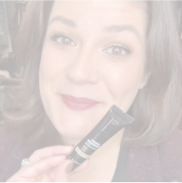When most people hear the word “aging,” they think of something scary, or undesirable.
The stages of aging can be gradual, and how fast your body noticeably ages can depend on anything from previous sun exposure, to daily hydration or overall health.
While the stages of aging might seem daunting, aging can be beautiful; so why not take it into your own hands?
Anti-Aging Creams & The Stages of Aging
First, you might notice a slight sag in your skin. Maybe soon after you begin to notice fine lines or wrinkles, perhaps even some dark eye circles. These signs of aging are normal, and the stages of aging can vary in speed for each and every one of us.
What matters though, is how you feel on the inside. So, let’s help you represent that on the outside!
Everyone wants younger-looking skin. Many people spend tons of money to achieve the glow, the softness, and the tautness of their skin from their younger years. So, do anti-aging creams really work?
The short answer: yes! But more importantly — why, and how?
Moisturizing daily will always increase the likelihood of healthier skin. But what makes anti-aging creams different?
As always, you get out what you put in… in other words, pay attention to the ingredients.
- SPF: It’s no secret that UV rays can be bad for our skin. Too much sun exposure, especially without proper protection, will leave your skin wrinkled, damaged, and can even lead to unwanted disease. If you’re not used to putting sunscreen on, make sure you look for moisturizers that contain SPF in them.
- Retinol: If you’ve ever researched anti-aging, you’ve probably heard about retinol. Usually in the form of a liquid serum, retinol basically does everything possible to soften lines and achieve a youthful appearance. However, many products can have a super strong concentration and when misused, can be harsh on skin.
- Collagen: As we age, our body produces less collagen which is responsible for giving our skin structure, which is why you might notice your skin sag more as you get older. Collagen supplements are useful, but many face masks also include this special protein.
- Vitamin C: While vitamin C often appears in the form of serums rather than moisturizers, it’s still a great way to get preventative care for premature signs of aging, and helps with redness or dark circles.
- AHA’s: Otherwise known as Alpha Hydroxy Acids, AHA’s are great for exfoliating. When we get rid of the dead skin cells that tend to exist on the outermost level of our bodies, we leave room for new ones to grow.
Excluding SPF, be careful when combining any of these active ingredients. For the best results, be gentle and patient with your skin, and try each product individually to see what your skin responds to best.
At What Age Should I Start Using Anti-Aging Products?
If you want to take the most precaution possible, it’s OK to start using anti-aging products as young as 20 years old. Too early, and we risk overcompensating for a protein our body already produces naturally.
That said, it’s more common to see people start their anti-aging skin care journey in their late 20’s or early 30’s.
But regardless of age, always remember: plenty of water, and plenty of sunscreen.
How Do You Get Rid of Wrinkles Permanently?
Topical products will typically not be able to get rid of wrinkles permanently. However, they will be able to ease the lines and give you the most natural look possible.
In addition to moisturizers, serums, and face masks, you can prevent future skin damage by protecting your skin from the sun, and for smokers — stop, or at least limit your cigarette intake.
What Products Should I Avoid?
When purchasing new skin care products, it’s best to buy:
- Paraben free
- Fragrance Free
- BHA and BHT Free
- Cruelty Free
Don’t be afraid of the stages of aging, take matters into your own hands today. For more information, and safe products that provide long lasting results, click here.


